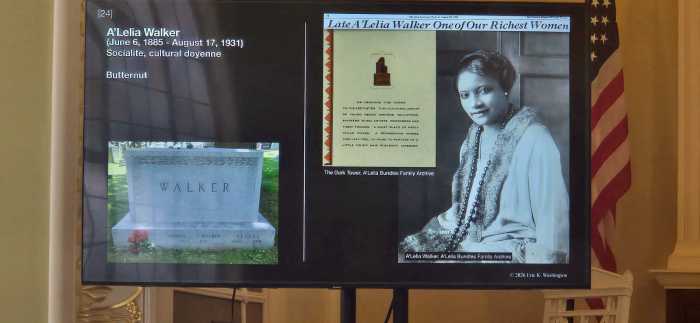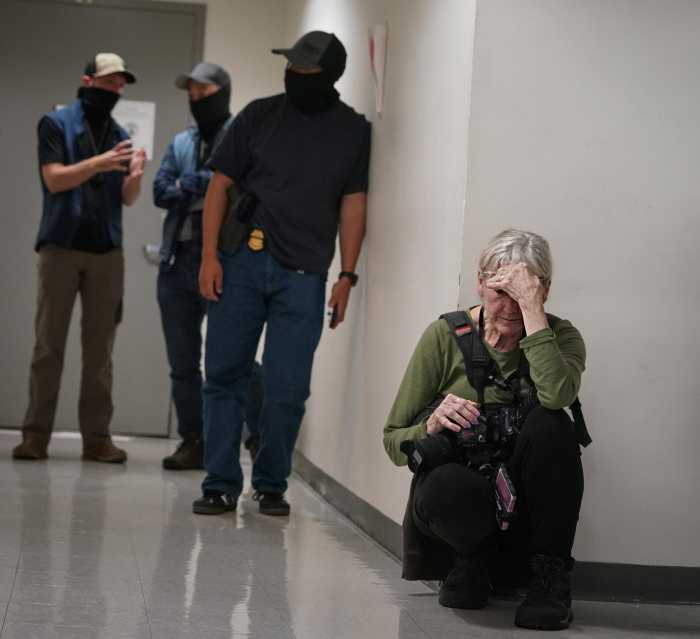A Brooklyn Surrogate’s Court judge will leave her position on March 1 following a lengthy investigation that found she had used anti-LGBTQ and racist slurs in the workplace and disparaged fellow judges, court employees, and even people appearing before her in court.
Harriet Thompson, who was elected to the Surrogate’s Court in 2018 and began serving in January 2019, signed a stipulation with the state Commission on Judicial Conduct (CJC) on January 7 saying she would step down and agreed that she would never again serve as a judge in any court. Surrogate’s Courts handle estates, trusts, and adoptions.
Almost immediately, Thompson began feuding with Richard Buckheit, the Brooklyn public administrator. That office handles estates that do not have executors or beneficiaries. The dispute led to Buckheit filing complaints against Thompson for making anti-gay comments. Simultaneously, Buckheit was accused of discrimination in hiring in his office. In 2021, Thompson was barred from hearing cases and was denied access to all non-public areas of the courts. The inspector general for the state court system began an investigation into Thompson in 2021. She continued to collect a paycheck.
While state law bars the release of CJC records in most cases, Thompson filed two lawsuits in 2022 — one in Brooklyn Supreme Court and a second before the state Court of Claims — so at least some of the content of the inspector general’s report became public in filings in those cases.
The inspector general compiled a long list of anti-gay, racist, and misogynistic comments attributed to Thompson. The inspector general found that Thompson said that four judges were “gay racist faggots…all f**king each other, they’re trying to ruin me and get me.”
The inspector general also concluded that Thompson said “They are coming for me, they’re jealous that I’m Black, but God will take care of them. Being gay is an abomination to mankind. Man shall not lay with man.”
In one filing, Matthew Berman, an attorney with Valli, Kane & Vagnini LLP, who represented Thompson, said that his client “denies making these statements with the exception of one comment objecting to homosexuality, which is religious speech protected under the Free Exercise Clause of the First Amendment of both the United States’ and New York State Constitutions).”
Referring to Latino people, the inspector general substantiated that Thompson said “I do not like Hispanic people. They have a deceitful trait that goes way back to biblical times” and made racist comments about other Black people frequently using the racist slur “ni***r” to describe them. Thompson also insulted court employees, people of West Indian heritage including Haitians, women, and members of the public.
In what has become standard play among religious conservatives, Thompson wrote in court filings that she was experiencing discrimination “on the basis of my race/ethnicity (African American), religion (Protestant Christian) and gender (female)” and “Because of my status as an African American, Christian female, and my membership in these protected categories, I was subjected to disparate treatment by the Office of Court Administration.”
It was the senior judges in the Office of Court Administration (OCA) who effectively suspended Thompson. In the Brooklyn Supreme Court case, her attorney argued that the OCA judges lacked the legal authority to do that. In a December 22 decision, Karen Rothenberg, the judge in that lawsuit, agreed that the OCA did not have that legal authority, but mostly made any reinstatement conditional on any decision from the CJC. Thompson’s agreement with the CJC renders that decision moot.
Berman and Thompson did not respond to requests for comment.



































